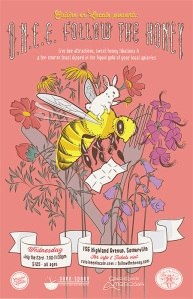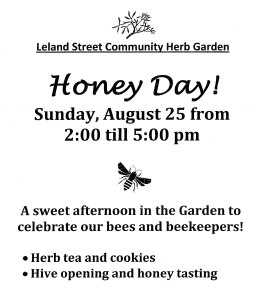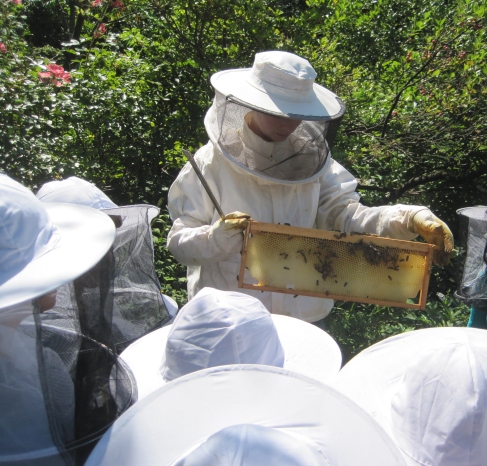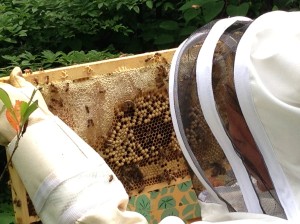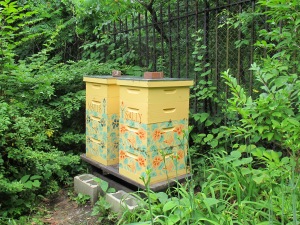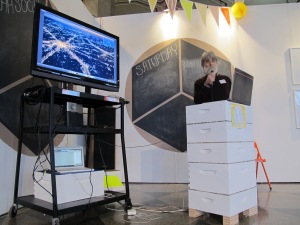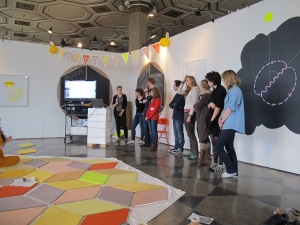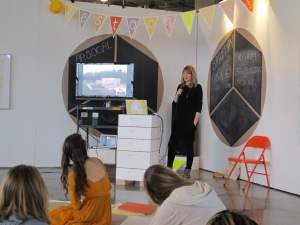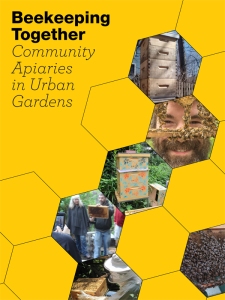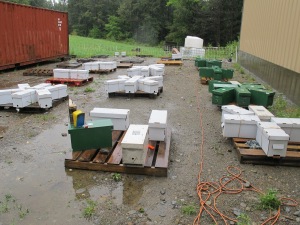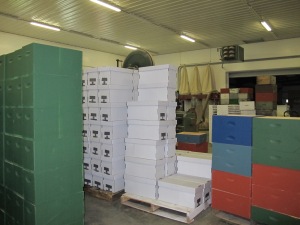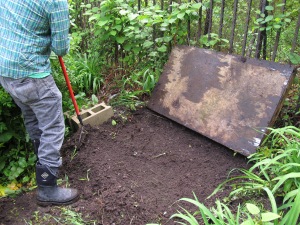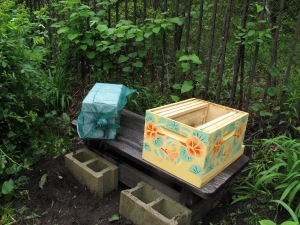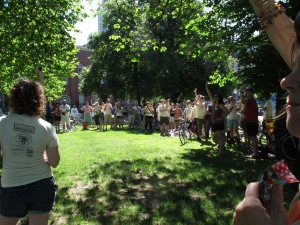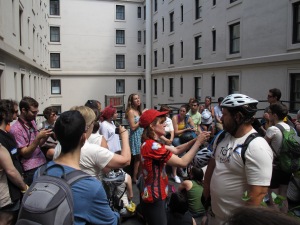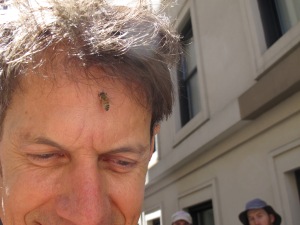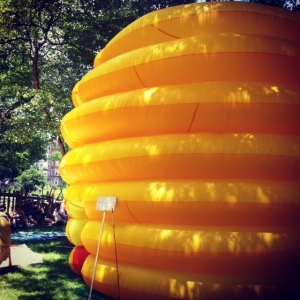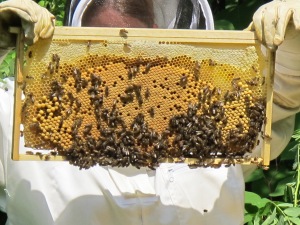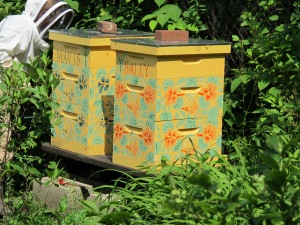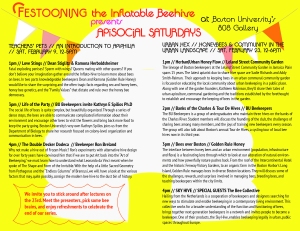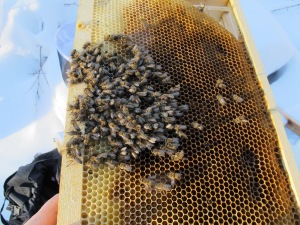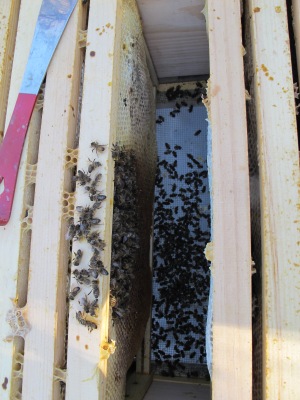Winter greetings!
Save the dates! There are few upcoming bee events in early February: Organic Bee School Saturday, February 9th and Sunday, February 10th
and FESTOONiNG – The Inflatable Beehive invites you to OVERWiNTER w/ APiSOCIAL SATURDAYS @ BU’s 808 Gallery Feb 9 & Feb 23

Photo by: Justina Wong
Organic Bee School will run two consecutive days (Saturday 2/9 and Sunday 2/10 from 8:30am-4:30pm each day).
During this two-day Bee School, Jean-Claude Bourrut will go over the basic techniques of organic beekeeping, including materials and equipment, beehive structure, the life cycle of bees, hive development and dynamic, seasonal apiary work, honey and hive products, common pests and diseases, and their organic management.
For those who are thinking about getting bees or are new to beekeeping, this is a great way to learn the Hows, Whys, and Whens of organic bee management.
The Saturday class will be held at the
Nate Smith House; 155 Lamartine Street; Jamaica Plain, MA 02130
The Sunday Class will be held at The Food Project:
555 Dudley Street; Dorchester, MA 02119
Pre-registration required.
Cost: $125 members/ $145 non-members.
Books will be provided on the day of the class, for an additional $12.
About the Instructor: Jean-Claude Bourrut is the Assistant Director for the Natick Community Organic Farm. He has been keeping honeybees for 20 years in urban and suburban settings, and currently manages a dozen hives in two apiaries. He is also the co-founder of the Boston Beekeeping Club and Tour De Hives, an annual bike tour of local apiaries in the Greater Boston Area.
For more information, please contact Drew Love by email at drew@nofamass.org or by phone at 330-801-0389.
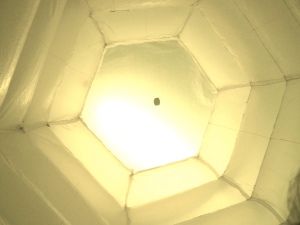
*FESTOONiNG // The Inflatable Beehive invites you to OVERWiNTER w/ APiSOCIAL SATURDAYS @ BU’s 808 Gallery
Feb 9 & Feb 23 // 2013
This series is part of the Alternative Visions/Sustainable Futures programing as well as the exhibition System ECOnomies which runs January 24-March 30
(Opening reception Thursday January 24, 6-8pm)
As the chilly season approaches don’t succumb to brainfreeze or anti-socialites. February 9th and 23rd, you are called to cluster, honeybee style, in Boston University’s 808 Gallery to learn a little something new about beehavior, community, and contemporary environmentalism. Keep the energy and ideas circulating as you rub elbows and antennae with an exceptional array of beekeepers, designers, community builders and apicultural experts.
Teachers’ Pets // An Introduction to Apiphilia
Saturday, Feb 9, 2013 // 12-5pm
Ok Cupid, your classic pick-up “Save the bees!” only got us so far with environmentalism. We’re ready to take our relationship to the next level. Today’s speakers offer a drop of science, pinch of art history, and spritz of classic sex-ed – an intriguing brew that may leave you hooked on Apis mellifera. Learning to understand these ladies may help us identify our own needs. A mere teaser will introduce us to the world of honey beehavior, social (super)organisms, api-architecture, and communication as it may be perceived by and reflected in human nature.
1pm // Love Stings // Dean Stiglitz and Ramona Herboldsheimer of Golden Rule Honey
Fatal exploding penises? Sperm with wings? Queens mating with other queens? If you don’t believe your imagination gather around the Inflato-hive to learn more about bees on bees. In two parts knowledgeable beekeepers Dean and Ramona would like to share the surprising and the often tragic facts regarding sex and honey bees, honey bee genetics, and the “Family Values” that dictate and rule over the honey bee democracy.
3pm // Life of the Party // BU Beekeepers invite Kathryn E Spilios Ph.D
The social life of bees is quite complex, but beautifully organized. Through a series of dance steps, the bees are able to communicate complicated information about their environment and encourage other bees to visit the flowers and bring back more food to keep the party going. Boston University’s very own Kathryn Spilios joins us from the Department of Biology to share her research focused on colony-level organization and communication in bees.
4pm // The Double Decker Dodeca // Beekeeper Ron Breland
Why not make a hive out of Frozen Music? Ron’s experiments with alternative hive design for over forty years have convinced him that if we are to put Art back into the “Art of Beekeeping,” we must learn how to understand what Leonardo da Vinci meant when he spoke of The Shape and Form of the Invisible. With the help of a little Sacred Geometry from Pythagoras and the “Endless Columns” of Brancusi, we will have a look at the various factors that may, quite possibly, consign the modern bee hive to the dust bin of history.
Urban Hex: Honeybees & Community in the Urban Landscape
Saturday // Feb 23, 2013 // 12-5pm
As troubling news of Colony Collapse Disorder sweeps the planet, there is not only a rise in environmental awareness, but an effort to encourage fewer hives in the care of more individuals. In an attempt to restore the potential for biodiversity and refocus beekeeping from a dominant industrial realm, urban beekeeping has taken the spotlight with an array of innovative solutions. Today you’ll hear about the importance of community, urban agricultural spaces, and mentorship in cities stretching from Massachusetts to the Netherlands!
Herban|Urban Honey Flow // Leland Street Community Garden
The lineage of Boston beekeepers at the Leland Street Community Garden in Jamaica Plain spans 15 years. The latest apiarist duo to share hive space are Sadie Richards and Addy Smith-Reiman. Their approach to keeping bees in an urban communal community garden is focused on educating the local community about urban beekeeping in a public place. Along with one of the garden founders, Kathleen Robinson, they’ll share their tales of urban apiculture, communal gardening and the traditions established by the forethought to establish and encourage the keeping of bees in the garden.
Banks of the Charles & Tour De Hives // BU Beekeepers
The BU Beekeepers is a group of undergraduates who maintain three hives on the banks of the Charles River. Student members will discuss the founding of the club, the challenges of sharing bees among many members, and the joys of training new beekeepers every season. The group will also talk about Boston’s annual Tour de Hives, a cycling tour of local bee hives now in its third year.
Bees over Boston // Golden Rule Honey
The interface between honey bees and an urban environment (population, infrastructure and flora) is a fascinating lens through which to look at our alteration of natural environments and how powerfully nature pushes back. From the roof of the Intercontinental Hotel and the historic Fenway Victory Gardens, to an organic farm in the Boston Harbor’s Long Island, Golden Rule manages bees in diverse Boston locations. They will discuss some of the challenges, rewards, and surprises involved in managing bees, breeding bees, and teaching beekeepers within the city limits.
SKY HIVE // SPECIAL GUESTS The Bee Collective
Hailing all the way from the Netherlands is a cooperation of beekeepers and designers searching for new ways to stimulate and enable beekeeping in a contemporary living environment. This collective, hailing from the Netherlands works for a broader understanding of the function and functioning of bees, brings together next generation beekeepers in a network and invites people to become a beekeeper. One of their products, the Sky Hive, enables beekeeping legally in urban, public spaces throughout Europe.

